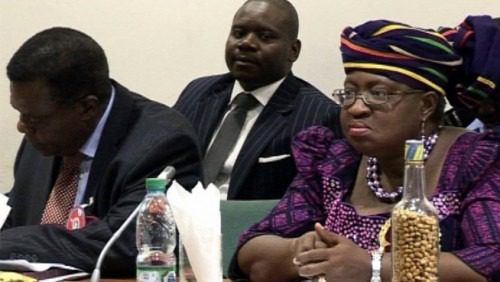National Issues
Nigeria Budget and Budgeting Processes.

Arguments have raged on over the financial illiteracy hindering most Nigerians from full participation in government and, clearly understanding governance and government activities across all spheres of life. A good financial knowledge is required in todays daily activities if we are to dictate fraud before it happens in our various businesses and avoid the siphoning, which has characterized all facets of government activities, especially in the annual budget preparation.
A budget is the sum of money allocated for a particular purpose and the summary of intended expenditures along with proposals for how to meet them. Usually the government councils translate their services through budget as it has to do with financial plan or estimate of proposed income and expenditure for a particular period normally a year. It is the translation in financial terms of government policies; a fiscal estimation of what government plans to spend, where it plans to spend it on and how it intends to source the funds. Although the success or failure of any government is always measured on the basis of the provision or neglect of the welfare of the people. The principles adopted in budget preparation is one that is aimed at making the entire process transparent and participatory. Budget is an important tool in governance and most relevant to the economic policy. It is the second most important document after the constitution in any nation. It signifies that budget is an expression of the constitution and statutes of government which endow the executive and legislature with designated financial and managerial responsibilities.
Budget undergoes some processes before it becomes both a law and an economic tool. Budgetary process involves all centers, programmes and administrative units of an entity in the development of periodic budget. The process involves all the executive and legislative processes, that is, collection of estimate from the various government departments to the defense before the various committees of the legislatures and debates in the floor of the houses, the passage into law and the final implementation and monitoring.
Preparation of budget primarily involves identification and setting of developmental goals. That is, it involves setting budgetary thrusts and policies based on the development plan. At the Federal level, the responsibility of the president for the preparation and submission of budget is well established. At the state level, it is the statutory responsibility of the governor to prepare and submit the budget. In the local government, the Chairman forms the government and invariably has complete control over budget preparation but assisted by the finance committee and departmental heads.
Though in most occasion, the process varies from State to State. The budget process commences with a call circular from the Executive Committee consisting the Chairman, the supervisory councilors and other officials (Secretary, treasurer, head of personnel and legal advisers). They call on all relevant departmental heads to prepare estimates for the coming fiscal year. Subsequently, the head of departments prepare estimates of expenditure in line with the goals and the estimates of revenue expected as well as the sources expected. As soon as the process is concluded, each department hands its own estimates to the treasurer or finance head.
The executives having gone through the budget estimates present it to legislature for approval. The method of approval also varies from one council to the other, that is, while some require a simple majority, others would require two-third majority for the approval. Now you know this, what will you do when next you hear of national budget?




















